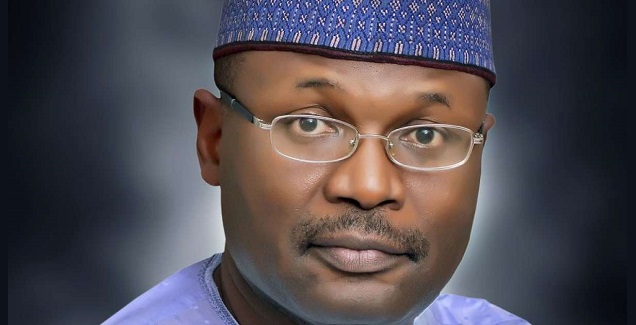Graffiti
Mobility is Changing Politics – And Nigeria is Next

By Brendan Tobin…
The last decade has witnessed a seismic shift in the way political campaigns are managed. Ten years ago, the majority of campaign workers were recording constituent details using pen and paper. Five years ago, we witnessed the first significant shift towards cloud-based voter management technology. And today, big data algorithms and near universal access to internet connectivity are changing the electioneering landscape in ways few could have envisioned.
In Europe, the passage of the General Data Protection (GDPR) legislation has meant that any political party doing business with or operating from an EU member state simply has to use a secure platform for handling voter outreach. In the US, the Cambridge Analytica scandals and revelations surrounding foreign governments’ attempts to use open-source demographic data to influence their voting have highlighted the potential for misuse of information stored on computer systems.
But what about Nigeria?
As Africa’s largest economy by GDP, we believe that Nigeria is on the cusp of a major political disruption – and not in the constitution of the House of Representatives or the Senate.
An International Data Corporations (IDC) survey this year showed that 84% of the Nigerian population is now connected to a mobile phone network. The country is quickly upturning Africa’s traditionally low mobile and internet connectivity rates and emerging as a trailblazer in the race to digitize. The result, I believe, will propel Nigeria onto the canvassing technology world map and strengthen grassroots citizen engagement throughout the country’s over 700 Local Government Areas (LGAs).
What Political Technology Can Offer
Touring Nigeria and meeting its energetic local political organizers, it’s hard not to taken aback by the vastness of the country, its complicated internal divisions, and the daily challenge local government leaders face in sustaining mutually beneficial relationships with their constituents.
I’ve heard frequently over the years about how poor digital infrastructure hampers mass communication methods, impedes the use of modern campaigning methods, and even prevents important issues from being passed up party chains of command to the regional and national levels. This has long been a cause of frustration and has prevented parties from utilizing the kind of big data based methodologies now widely employed in the US and Europe.
I believe that this is the year in which that picture will finally change.
Read also: Rethinking Research in Nigeria
Political technology tools that facilitate quick and easy mass communication with citizens, make light work of issue capture, logging, and responses, and allow the near instantaneous synchronization of data between party headquarters and field worker are already on the market. And you no longer need the budget of a national political party to roll them out.
These tools, which have successfully integrated with political and demographic registries from over 70 countries around the world, are perfectly primed to help both local and national politicians navigate Nigeria’s unique ethnographic landscape and mount effective strategies to both shore up local support and effectively serve the needs of local communities.
As the National Information Technology Development Agency (NITDA) continues to work on developing a data governance framework for Nigeria, these tools can also give parties the assurance they need that they are implementing internationally-accepted best practices for privacy protection and staying one step ahead of potential future data regulations.
Starting from a relatively clean slate privacy protection-wise, it can also be hoped that Nigeria’s government will be able to institute safeguards against the kind of “abuse of data” that vested interests have recently carried out in the US. Securing constituent data on properly governed cloud systems is a protective measures that parties can employ right now to ensure that voter information is used only for its intended purposes.
Nigerians are a resourceful and entrepreneurial people. I have seen countless examples of their ability to get US-style campaigns up and running in a fraction of the time it would take on the other side of the Atlantic. When political will and infrastructure coincide in Nigeria, the results can be as impressive as they are outstanding.
With robust connectivity infrastructure now in place and the formulation of a cohesive data protection policy for the country underway, this is a unique historical moment of opportunity for parties across the country to digitize their election and overhaul their constituent management for the benefit of all involved. I am confident many will size the opportunity.
RipplesNigeria… without borders, without fears
Click here to join the Ripples Nigeria WhatsApp group for latest updates.
Join the conversation
Support Ripples Nigeria, hold up solutions journalism
Balanced, fearless journalism driven by data comes at huge financial costs.
As a media platform, we hold leadership accountable and will not trade the right to press freedom and free speech for a piece of cake.
If you like what we do, and are ready to uphold solutions journalism, kindly donate to the Ripples Nigeria cause.
Your support would help to ensure that citizens and institutions continue to have free access to credible and reliable information for societal development.
























